WHAT: The 26th Northern Virginia Fine Arts Festival
WHERE: Reston Town Center, Reston VA
WHEN:May 19-20, 2017
The Northern Virginia Fine Arts Festival is a competitive, juried, outdoor event that showcases the best contemporary fine art and craft from around the nation. The Festival, which typically attracts 30,000+ patrons, is held in Reston Town Center, located in the affluent suburbs of Washington, DC. Reston Town Center is an easily accessible and upscale shopping and entertainment destination. Our clientele is described as "affluent, enthusiastic young to middle aged couples who are not too price sensitive."
We recognize that our artists invest time, effort and money to participate in the Festival and we strive to make sure that everyone's Festival experience is excellent. 2017 exhibiting artists will enjoy outstanding support from our exceptional volunteers and a diverse knowledgeable clientele. Below are some artist hospitality attributes of our event:*Nationally ranked outdoor festival*The Great Application Giveaway: Art-Linx will award 3 lucky artists who elect to participate in this free drawing their jury fee. Entry is based on application (not acceptance) to the show. Winners will be notified via email.*Drive-up, set-up/tear down adjacent to booth*Reserved artist-only parking for oversize vehicles*Convenient and profitable selling hours*Ample volunteer support*Booth sitters*$5,000 in awards*Printed program that features full-color thumbnails and websites for every artist with accompanying booth numbers*Continental breakfasts*Reduced hotel rates for onsite accomodations*Free bottled water and snack delivery*Indoor restrooms*Police presence in additional to the 24/7 Reston Town Center Security*Artist mentor opportunitiesEach year our Festival features approximately two hundred artists who are selected on the basis of quality, originality and craftsmanship by a panel of independent jurors and by members of our curatorial staff. All are superb professionals with extensive experience in various disciplines of studio art and museum curation.This Festival is annually produced by the Greater Reston Arts Center and is our primary fundraiser. As a 501(c)3 non-profit dedicated to enriching community life through excellence in contemporary visual art. We offer free-to-the-public exhibitions and art education programs across all ages, and impact over 20,000 children in 40 are schools. The proceeds from the Festival directly support our educational and outreach programs.
We are committed to elevating the profile of our Festival, and have increased our marketing budget to reach new audiences and promote interest from collectors. We contract with a professional PR firm to develop an aggressive marketing and promotion campaign to better market, recognize, and celebrate our Festival artists. We negotiate for well-placed advertising in prominent magazines and newspapers, arts focused catalogs, and online Going Out Guides. We have a strong outreach campaign for social media, radio, and television, which includes both paid and trade advertising.For the event approximately 70% of the artists are returning, 30% are new and 6% are invited, which include the ten award winners from the previous year. Exhibitor Ginny Herzog says; "I have been exhibiting at the Northern Virginia Fine Arts Festival for fifteen years and it is my favorite and is now my only east coast show. This show repeatedly delivers art savvy patrons and collectors from around the DC area."Art collectors know our Festival and mark their calendars early for our marquee event. Local collectors Bob & Bonnie said "We love to purchase artwork from the amazing artists at the Northern Virginia Fine Arts Festival. These works add vibrancy and interest to our home, while helping support the arts and artists who create them. Over the years we have collected over 20 pieces of art at this event and made many connections with artists we now call "friends". It is one of the best venues for art in the Mid-Atlantic, and also a highly anticipated event for the community and the metropolitan Washington, DC area."Art enthusiast, Margaret says; "every year I have a list of events I very much look forward and must repeat....The quality and diversity of the art is excellent and always interesting...This year the first picture I saw as I approached the Festival took my breath away. It was perfect for a spot I had in mind...."Don't miss your opportunity to be here!Apply online through Juried Art ServicesNOW ACCEPTING APPLICATIONS:Application Deadline: December 11, 2016Application Fee: $50 (non-refundable)Each application require four (4) artwork images and one (1) booth/display image fully representative of work you intend to exhibit; and an artist statement, explaining your creative process, use of materials and techniques.
Call or Email questions to Festival Director Erica Harrison 703-471-9242 ext. 113 ericaharrison@restonarts.org





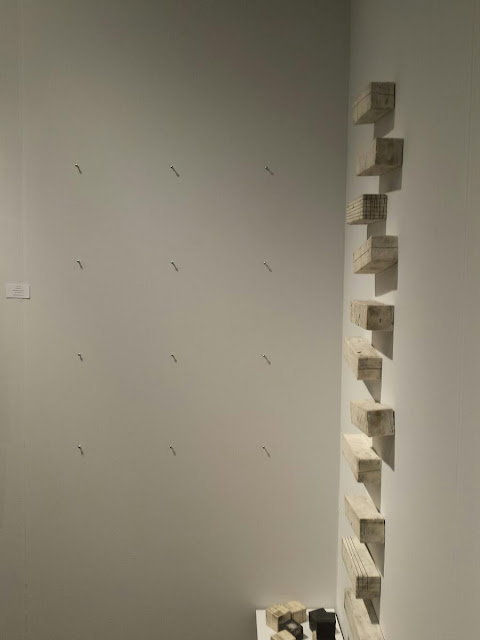
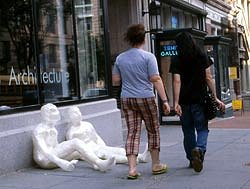 And
And 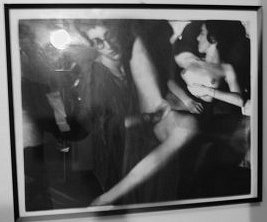 Iver
Olson is another talented discovery for me. He gets the award for the
best porn in the show, although his display is also peppered with some
otherwise just plain sensual photo-collages. It is almost as if there
were two Olsons in the show: a really torrid, sensual photographer, and a
brilliantly inventive pornographer.
Iver
Olson is another talented discovery for me. He gets the award for the
best porn in the show, although his display is also peppered with some
otherwise just plain sensual photo-collages. It is almost as if there
were two Olsons in the show: a really torrid, sensual photographer, and a
brilliantly inventive pornographer.
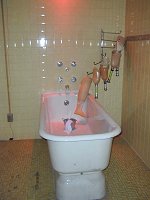
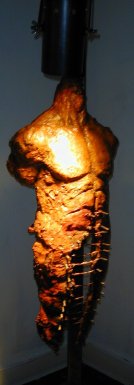
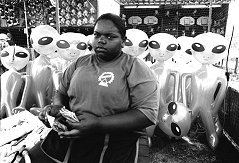 Matt Dunn
Matt Dunn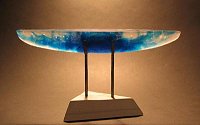 In these rooms I also liked
In these rooms I also liked 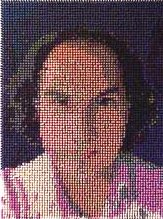
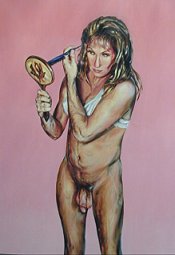 Staying
within two dimensions, and doing a magnificent job of it are three
enviably talented painters: Margaret Dowell, Michal Hunter and Jeffry
Cudlin. All of these artists have that spectacular technical mastery of
the brush that it is so easily dismissed by people who have never tried
to mix cerulean blue with Payne’s gray and ended up with mud. Dowell’s
paintings show not only extraordinary technical skills, but also a
hungry sense of desire and intelligent understanding of her subjects –
who are often transgender and cross dressing personages around our area.
Staying
within two dimensions, and doing a magnificent job of it are three
enviably talented painters: Margaret Dowell, Michal Hunter and Jeffry
Cudlin. All of these artists have that spectacular technical mastery of
the brush that it is so easily dismissed by people who have never tried
to mix cerulean blue with Payne’s gray and ended up with mud. Dowell’s
paintings show not only extraordinary technical skills, but also a
hungry sense of desire and intelligent understanding of her subjects –
who are often transgender and cross dressing personages around our area.
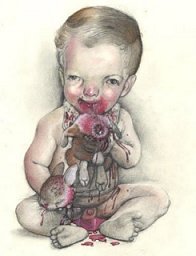
 Located on the main hallway of the fourth floor,
Located on the main hallway of the fourth floor, 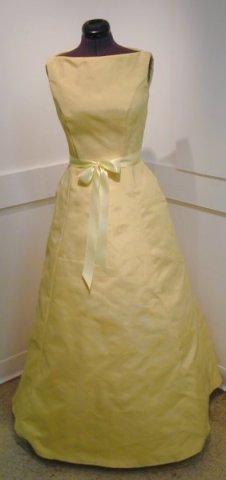 I
also enjoyed Bridget Vath’s very inventive use of Kevlar to design and
construct dresses and other clothing apparel; I suspect that Vath could
start a very successful line of Kevlar clothing with good markets in
Baghdad, Beirut, Bogotá, Atlanta and most of the Balkans.
I
also enjoyed Bridget Vath’s very inventive use of Kevlar to design and
construct dresses and other clothing apparel; I suspect that Vath could
start a very successful line of Kevlar clothing with good markets in
Baghdad, Beirut, Bogotá, Atlanta and most of the Balkans.
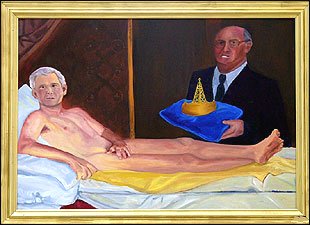
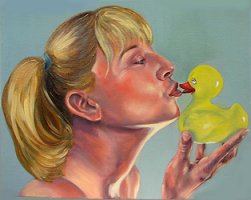 Of these,
Of these, 

